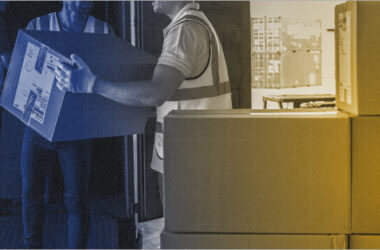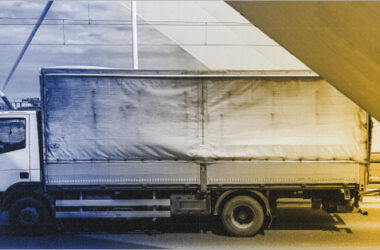As businesses engage in the multifaceted process of turning raw materials into finished products, the importance of safeguarding these operations against unforeseen risks becomes paramount. Enter Manufacturing Insurance, a comprehensive safeguard to fortify the foundation of manufacturing enterprises from such risks. This blog will take you on a tour through the complex world of manufacturing insurance, looking into the tailored coverages and risk mitigation measures that protect businesses from the numerous problems they encounter. This guide aims to empower manufacturers with the knowledge needed to make informed decisions about their insurance needs.
What is Manufacturing Insurance?
Manufacturing insurance is a type of insurance that is designed to protect manufacturers from financial losses that may arise from unforeseen events. This type of insurance covers a wide range of risks that manufacturers face, from property damage to product liability. It is a crucial component of risk management for any manufacturing business, as it can help to mitigate the financial impact of unexpected events.
What does manufacturing Insurance cover?
A manufacturing insurance policy typically provides coverage for a range of risks and liabilities associated with the manufacturing industry. The specific coverages may vary depending on the insurance provider and the policy terms, but here are some key coverages commonly included in a manufacturing insurance policy:
1.Property Damage Coverage: Coverage for physical assets such as buildings, machinery, equipment, and inventory against perils like fire, explosion, lightning, storms, and other specified risks.
2. Machinery Breakdown Coverage: Protection against sudden and unforeseen physical damage to machinery due to mechanical breakdown, electrical failure, or other covered perils.
3. Business Interruption Coverage: Compensation for financial losses incurred as a result of a covered event that causes a temporary shutdown of business operations.
4. Public Liability Coverage: Coverage for legal liabilities arising from third-party bodily injury or property damage that occurs on the insured’s premises.
5. Product Liability Coverage: Protection against claims for bodily injury or property damage caused by the insured’s products.
6. Goods in Transit Coverage: Protection for goods and materials while they are in transit, either within the country or internationally.
7. Intellectual Property Infringement: This coverage is designed to protect businesses from legal actions arising from allegations of patent, trademark, or copyright infringement. The policy may cover the legal expenses associated with defending against intellectual property infringement claims. In the event of an adverse judgment or settlement, the insurance policy may provide coverage for monetary damages that the insured is required to pay as a result of an intellectual property infringement lawsuit.
It’s important for businesses to carefully review and customize their insurance policies to ensure they adequately address the specific risks and operations of their manufacturing activities. Working closely with an experienced insurance broker or agent can help in tailoring the coverage to meet the unique needs of the business.
Claims Process in a Manufacturing Insurance Policy
- Filing a Claim
In the event of a loss or damage, the insured must notify the insurer as soon as possible. The insured should provide all the necessary information such as the policy number, date and time of loss, and a detailed description of the incident. The insurer will then provide the insured with a claim form to fill out. The claim form requires the insured to provide details of the loss or damage, including the cause, location, and value of the loss. The insured should also attach any relevant documents such as police reports, invoices, and photographs.
2. Claim Investigation
Once the insurer receives the claim form, they will begin an investigation into the claim. The insurer will assign an adjuster to investigate the claim and assess the damage. The adjuster may request additional information from the insured or conduct an on-site inspection.
During the investigation, the insurer will determine whether the claim is covered under the policy and the extent of the damage. If the claim is covered, the insurer will determine the amount of compensation that the insured is entitled to.
3. Settlement and Reimbursement
After the investigation is complete, the insurer will make a settlement offer to the insured. The settlement offer will include the amount of compensation the insured is entitled to, less any deductibles or exclusions. If the insured accepts the settlement offer, the insurer will issue a payment to the insured. If the insured rejects the settlement offer, the insurer and the insured may negotiate a different settlement amount.
Once the settlement is agreed upon, the insurer will reimburse the insured for the loss or damage. The insured should keep all receipts and invoices related to the loss or damage to provide to the insurer for reimbursement.
Importance of Manufacturing Insurance for Manufacturers
Manufacturing insurance is crucial for businesses in India, as it provides protection against a variety of risks and uncertainties that can have a significant impact on operations and financial stability. Here are some reasons why manufacturing insurance is important for manufacturing businesses in India:
1.Protects against Property Damage: Manufacturing plants are equipped with expensive machinery and equipment. Property insurance helps protect these assets from risks such as fire, natural disasters, theft, and other perils, ensuring that the business can recover or replace damaged property.
2. Ensures Business Continuity: Business interruption coverage provided by some manufacturing insurance policies is essential for manufacturing businesses. It provides coverage for financial losses incurred during the downtime caused by a covered event, allowing the business to continue paying bills, salaries, and other ongoing expenses.
3. Provides Liability Coverage: Public liability insurance and product liability insurance protect manufacturing businesses from legal liabilities arising from third-party bodily injury, property damage, or other claims related to their products or operations.
4. Risk Management for Machinery: Manufacturing operations heavily rely on machinery. Machinery breakdown cover provided by these policies helps cover the costs associated with sudden and unforeseen breakdowns, ensuring that the business can quickly resume operations without incurring significant financial losses.
5. Supply Chain Protection: The goods in transit cover in these policies provides coverage for goods and materials while in transit or storage, protecting the business from financial losses due to damage or loss of inventory.
6. Provides Financial Stability: A manufacturing insurance policy provides a financial safety net, allowing manufacturing businesses to manage unexpected costs and liabilities. It contributes to overall financial stability and can be a critical factor in the long-term success of the business.
7. Risk Transfer: This insurance allows manufacturing businesses to transfer certain risks to an insurance company, providing a level of financial protection that might otherwise be challenging or costly to manage independently.
Risk Assessment and Management Practices for Manufacturers
- Identifying Risks
Before manufacturing companies can mitigate risks, they must first identify them. Risk assessment involves analyzing all aspects of the manufacturing process to determine potential hazards. These risks can include employee injuries, equipment failure, natural disasters, and supply chain disruptions.
To identify risks, manufacturing companies can conduct a thorough analysis of their operations and processes. This analysis can help them identify potential hazards and develop strategies to minimize their impact. Additionally, manufacturing companies can consult with insurance providers to identify risks that may be unique to their industry.
2. Mitigating Risks
Once manufacturing companies have identified potential risks, they can take steps to mitigate them. Risk mitigation involves implementing strategies to reduce the severity of potential risks and prevent them from occurring.
Manufacturing companies can mitigate risks by implementing safety protocols, providing employee training, and investing in equipment maintenance and upgrades. Additionally, they can develop contingency plans to address potential supply chain disruptions and natural disasters.
Manufacturing insurance can also help companies mitigate risks by providing financial protection in the event of a loss. Insurance policies can cover a range of risks, including property damage, liability claims, and business interruption.
By identifying and mitigating risks, manufacturing companies can protect their employees, assets, and bottom line. By working with insurance providers, they can develop comprehensive risk management strategies that help them navigate the challenges of the manufacturing industry.
How to Select the Right Manufacturing Insurance Provider?
When it comes to manufacturing insurance, selecting the right insurance provider is crucial. A reliable insurance provider can help protect your business from potential losses and liabilities. Here are some factors to consider when choosing an insurance provider:
Assessing Insurer Credentials
It’s important to assess the credentials of an insurance provider before choosing them. Look for an insurer that is licensed and regulated by IRDA. The IRDA ensures that insurers are financially stable and able to pay out claims. You can also check the insurer’s credit ratings from independent rating agencies.
Comparing Quotes
It’s essential to compare quotes from different insurance providers to find the best coverage at the most competitive price. Make sure you compare apples to apples and look for any hidden costs or exclusions. A reputable insurer will provide you with a detailed breakdown of coverage and manufacturing insurance cost.
Customer Service and Support
Another important factor to consider is the level of customer service and support provided by the insurer. Look for an insurer that has a dedicated claims team and provides 24/7 support. You should also check reviews from other customers to see how they rate the insurer’s customer service.
Frequently Asked Questions
- How is the premium calculated in a manufacturing insurance policy?
The premium for a manufacturing insurance policy is calculated based on a number of factors, including the type of coverage, the size of the business, and the level of risk involved. Insurance companies will typically assess the risk of a business based on factors such as its location, the type of products it manufactures, and its safety record.
2. What are the benefits of opting for a comprehensive factory insurance policy?
A comprehensive factory insurance policy can provide coverage for a wide range of risks, including property damage, business interruption, and liability claims. By opting for this type of policy, manufacturers can have peace of mind knowing that they are protected against many potential risks.
3. What is included in general liability insurance for manufacturers?
General liability insurance for manufacturers can provide coverage for a wide range of risks, including bodily injury, property damage, and personal injury claims. This type of insurance can also cover the costs of legal fees and compensation claims arising from these types of claims.








